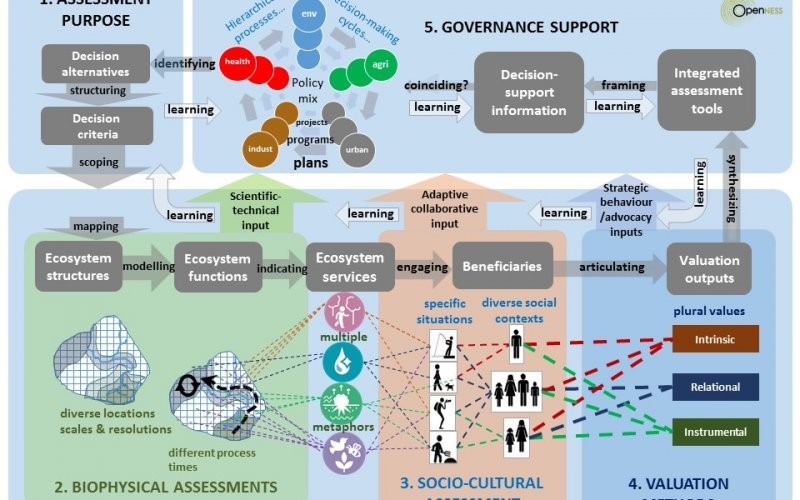Policy support tool
Integrated Assessment and Valuation Framework

The Integrated Assessment and Valuation Framework for ecosystem services provides guidance on how to select, combine and apply bio-physical, monetary and socio-cultural assessment and valuation methods into hybrid approaches that address policy purposes. The ‘Integrated Assessment and Valuation of Ecosystem Services: Guidelines and Experiences’ report (can be uploaded at: https://oppla.eu/product/18212)provides a number of tools that practitioners can use to plan, commission and evaluate integrated assessment and valuation studies of ecosystem services.
The report starts by providing a rapid guide to commonly used biophysical, socio-cultural and monetary methods. A number of different ‘bottom-up’ and ‘top-down’ approaches to selecting methods fit-for-purpose are provided. Each method presented in the report are described in a fact sheet (available online at http://www.oppla.eu/). Network diagrams show the reader which assessment and valuation methods are most related and complementary. Decision trees provide a stepwise framework for scoping and integrating assessment and valuation studies which identifies the best method that is suitable to a specific purpose. Method consideration matrices provide a detailed list of several dozen method selection criteria, derived from case study experiences. Selection criteria tables are further specified for each suite of biophysical, socio-cultural and monetary valuation methods. An online method selection tool demonstrates how combinations of study purposes, considerations and constraints can be used to identify portfolios of methods. Real-life examples of method application and hybridisation show managers and researchers that the complexities of ecosystem service assessments require research projects with creative arenas and that are sufficiently flexible to hybridise methods opportunitically as data is revealed and decision windows arise.